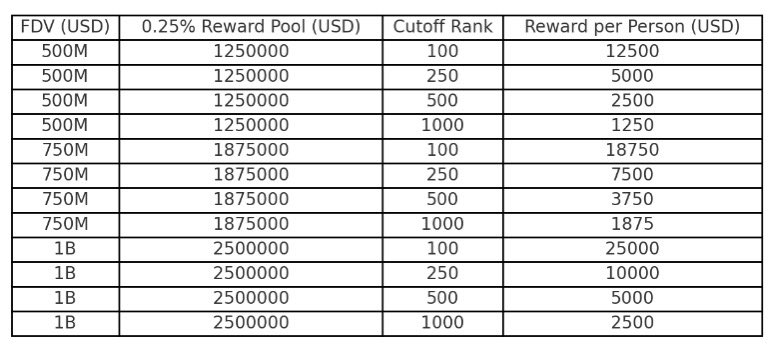Navigating the Intersection of AI and Society: A 2025 Perspective
—
Setting the Stage: Why AI Matters More Than Ever
Artificial Intelligence (AI) has gone from a futuristic concept to an integral part of everyday life. In 2025, AI systems quietly orchestrate countless facets of society — from powering smart assistants in our homes to influencing critical business and healthcare decisions. But as AI’s presence deepens, so do the questions: How do we harness AI’s power responsibly? What opportunities and risks lie ahead? This report explores the current landscape of AI in 2025, analyzing technological advances, ethical considerations, societal impacts, and the path forward.
—
The Technological Pulse: AI Innovations Shaping 2025
AI development in 2025 is marked by monumental leaps in capability and accessibility. Three key trends define this landscape:
1. The Rise of Multimodal AI
Modern AI no longer works with just text or images independently. Multimodal AI systems — those capable of processing and integrating data across text, sound, images, and video — have transformed how machines interpret the world. This advancement enables more natural human-machine interaction and has found applications in areas like virtual assistants that can understand spoken commands contextualized by visual surroundings, and in healthcare for diagnosing illnesses using combined imaging and patient history data.
2. Democratization of AI Tools
Advanced AI tools are no longer confined to tech giants or specialized labs. Open-source frameworks and cloud-based AI services have made state-of-the-art machine learning accessible to startups, researchers, and individuals worldwide. This democratization fosters innovation but also raises concerns regarding AI misuse and the uneven distribution of expertise.
3. AI for Climate and Sustainability
AI’s ability to analyze massive datasets is harnessed increasingly in environmental monitoring and sustainable development. From optimizing energy grids to predicting extreme weather, AI-driven solutions contribute to tackling climate change challenges, signaling a shift where technology supports global well-being rather than solely commercial interests.
—
Ethical and Societal Reflections: Navigating AI’s Complex Terrain
Technology’s progress rarely exists in isolation. The integration of AI into daily life poses pressing ethical and societal questions:
Transparency and Explainability
As AI systems influence decisions affecting individuals and communities — such as loan approvals, medical treatments, and judicial rulings — understanding how these AI conclusions are reached becomes paramount. The “black box” nature of many AI models challenges fairness and accountability. Efforts to design explainable AI (XAI) increase trust but often require balancing transparency with model complexity and performance.
Bias and Fairness
Despite improvements, AI can perpetuate or even exacerbate existing biases present in training data. This has real-world consequences, from racial and gender prejudices in hiring algorithms to discriminatory surveillance practices. Addressing bias demands rigorous auditing, diverse datasets, and stakeholder engagement to ensure AI serves inclusively.
Privacy in an AI World
With AI systems consuming vast quantities of personal data, privacy concerns escalate. Techniques such as federated learning and differential privacy help mitigate risks by enabling AI training on decentralized or anonymized data. Nonetheless, navigating legal frameworks and aligning with cultural expectations on data usage remains challenging.
—
Societal Impact: Shifting Jobs, Education, and Daily Life
AI’s ripple effects touch various dimensions of society, reshaping economic and social structures.
Workforce Transformation
AI-driven automation continues to alter job landscapes, displacing some roles but also creating new positions requiring digital and analytical skills. Workforce adaptation depends heavily on educational systems’ flexibility and the availability of reskilling programs. Policymakers and industries face the complex task of preparing populations for an AI-augmented future while minimizing socio-economic disruptions.
Education Reinvented
AI-powered personalized learning platforms tailor education to individual students’ needs, pace, and learning styles. In 2025, virtual tutors and intelligent content curation enhance accessibility, particularly in underserved areas. However, ensuring equitable access and addressing potential overreliance on technology remain critical.
Everyday Interactions
From AI-driven recommendation engines shaping what we watch or buy, to advanced language models supporting creative endeavors and mental health, AI increasingly weaves into daily decisions and interactions. The growing intimacy between humans and machines encourages reflections on autonomy, digital literacy, and emotional well-being.
—
Charting a Responsible AI Future: Guiding Principles
The trajectory of AI depends heavily on how society chooses to govern and apply its power. Several guiding pillars emerge:
– Collaboration Across Sectors: Public, private, and academic sectors must work together to develop standards, share knowledge, and anticipate challenges.
– Inclusive Design and Participation: Diverse voices should influence AI development to reflect varied experiences and avoid narrow worldviews.
– Regulation and Incentives: Thoughtful policies can balance innovation with protections, encouraging responsible AI while preventing harmful use.
– Continual Education and Awareness: Enhancing public understanding of AI’s capabilities and limits empowers informed decisions and healthy skepticism.
—
Looking Ahead: Anchoring Hope in Human-AI Synergy
Artificial Intelligence, in all its complexity, is neither inherently good nor bad. Its value emerges when aligned with human creativity, empathy, and judgment. Navigating the AI landscape in 2025 invites us to embrace technology’s potential while vigilantly addressing its risks.
The future will likely be shaped not by AI alone, but by the quality of our choices surrounding it — how we nurture ethics alongside innovation, balance efficiency with equity, and foster an ecosystem where AI amplifies the best of human potential.
This nuanced journey challenges us to think beyond automation and algorithms, seeing AI as a catalyst for a more connected, capable, and conscientious society.
—
Sources
– MIT Technology Review – The State of AI 2025
– World Economic Forum – AI and the Future of Work
– OpenAI – Advancing Multimodal AI
– MIT Climate Portal – AI for Sustainability
– AI Ethics Journal





